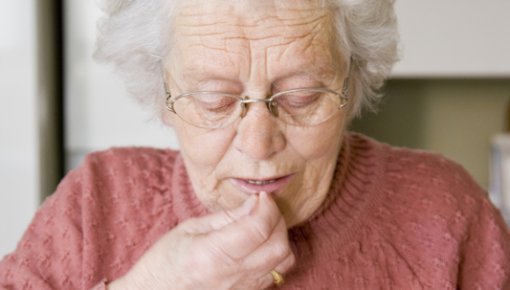Cameron ID, Dyer SM, Panagoda CE et al. Interventions for preventing falls in older people in care facilities and hospitals. Cochrane Database Syst Rev 2018; (9): CD005465.
De Souto Barreto P, Rolland Y, Vellas B et al. Association of Long-term Exercise Training With Risk of Falls, Fractures, Hospitalizations, and Mortality in Older Adults: A Systematic Review and Meta-analysis. JAMA Int Med 2019; 179(3): 394-405.
Deutsche Gesellschaft für Allgemeinmedizin und Familienmedizin (DEGAM). Hausärztliche Leitlinie: Multimedikation. Empfehlungen zum Umgang mit Multimedikation bei Erwachsenen und geriatrischen Patienten (S3-Leitlinie). AWMF-Registernr.: 053-043. 2021.
García-Hermoso A, Ramirez-Vélez R, Sáez de Asteasu ML et al. Safety and Effectiveness of Long-Term Exercise Interventions in Older Adults: A Systematic Review and Meta-analysis of Randomized Controlled Trials. Sports Med 2020; 50(6): 1095-1106.
Gillespie LD, Robertson MC, Gillespie WJ et al. Interventions for preventing falls in older people living in the community. Cochrane Database Syst Rev 2012; (9): CD007146.
Hopewell S, Copsey B, Nicolson P et al. Multifactorial interventions for preventing falls in older people living in the community: a systematic review and meta-analysis of 41 trials and almost 20 000 participants. Br J Sports Med 2020; 54(22): 1340-1350.
Lee J, Negm A, Peters R et al. Deprescribing fall-risk increasing drugs (FRIDs) for the prevention of falls and fall-related complications: a systematic review and meta-analysis. BMJ Open 2021; 11(2): e035978.
Lee SH, Yu S. Effectiveness of multifactorial interventions in preventing falls among older adults in the community: A systematic review and meta-analysis. Int J Nurs Stud 2020; 106: 103564.
Reeve E, Jordan V, Thompson W et al. Withdrawal of antihypertensive drugs in older people. Cochrane Database Syst Rev 2020; (6): CD012572.
Sherrington C, Fairhall N, Wallbank G et al. Exercise for preventing falls in older people living in the community: an abridged Cochrane systematic review. Br J Sports Med 2020; 54(15): 885-891.
Sherrington C, Michaleff ZA, Fairhall N et al. Exercise to prevent falls in older adults: an updated systematic review and meta-analysis. Br J Sports Med 2017; 51(24): 1750-1758.
Wylie G, Torrens C, Campbell P et al. Podiatry interventions to prevent falls in older people: a systematic review and meta-analysis. Age Ageing 2019; 48(3): 327-336.
Zhao R, Bu W, Chen X. The efficacy and safety of exercise for prevention of fall-related injuries in older people with different health conditions, and differing intervention protocols: a meta-analysis of randomized controlled trials. BMC Geriatr 2019; 19(1): 341.
IQWiG health information is written with the aim of helping people understand the advantages and disadvantages of the main treatment options and health care services.
Because IQWiG is a German institute, some of the information provided here is specific to the German health care system. The suitability of any of the described options in an individual case can be determined by talking to a doctor. informedhealth.org can provide support for talks with doctors and other medical professionals, but cannot replace them. We do not offer individual consultations.
Our information is based on the results of good-quality studies. It is written by a team of health care professionals, scientists and editors, and reviewed by external experts. You can find a detailed description of how our health information is produced and updated in our methods.

